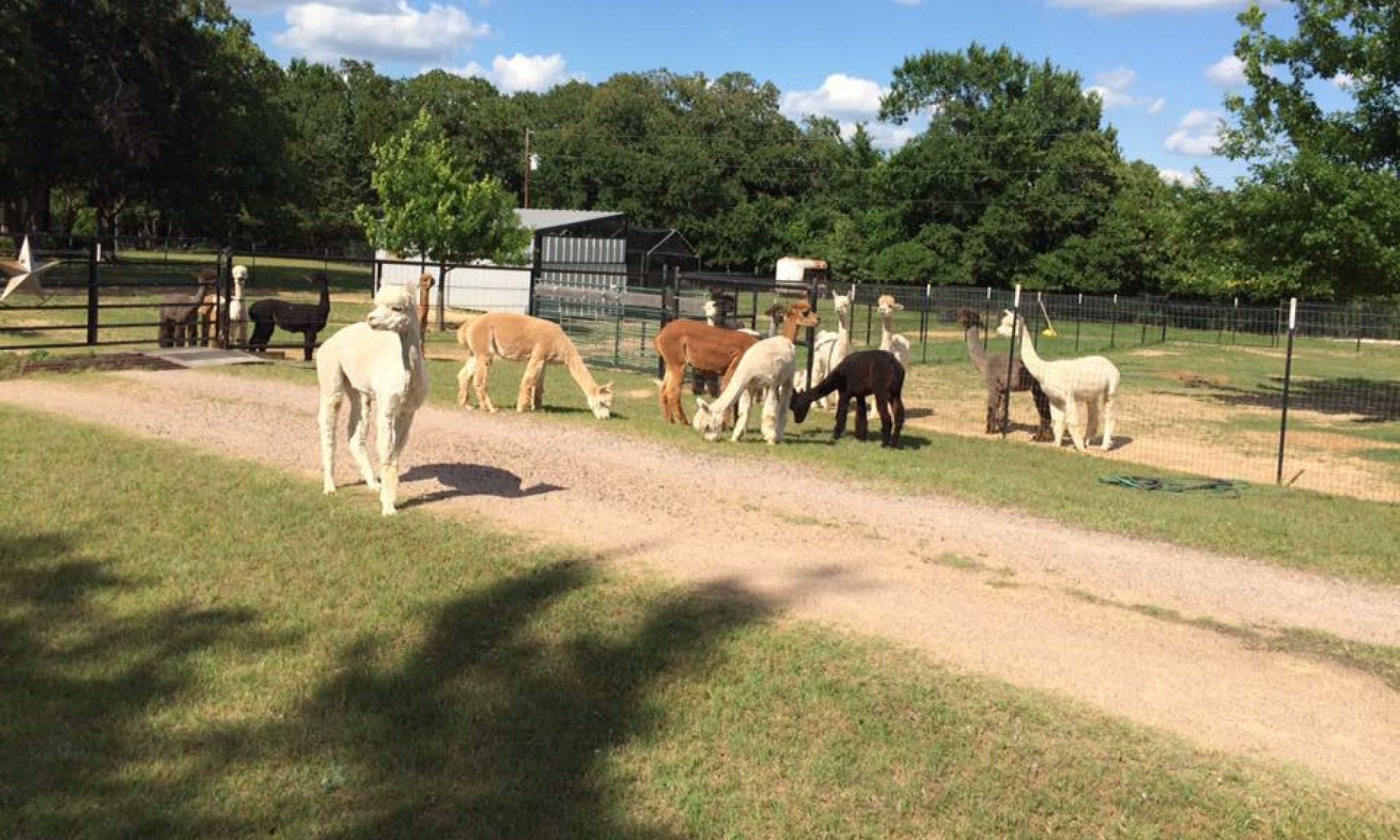Heat Stress
There’s a good video about this danger at the end of a video that you can find access to at:
https://txolan.clickmeeting.com/webinar-recording/rask12c3e
It is important to give your Alpacas access to shade, water, fans, and electrolytes, and water sprayed on their legs and bellies. Be sure to observe flaring nostrils as this is an obvious sign of heat stress. If you see this take immediate steps to document their temperature with a fecal thermometer (100º-102º is normal.) Use water on their legs and bellies to lower the temperature. We’ve heard of some ranchers that use alcohol swabbed on their skin where their legs meet their body.
How Hot is Too Hot?
Keep a close eye on the combined temperature and humidity expressed as a sum. 140 is the total that should encourage you to monitor your herd for signs of heat stress. 160-180+ is the total that is a dangerous level.
Utilize water through hoses after it has been cooled to spray the Alpaca’s legs and bellies—never on their blanket, head and neck. You will end up cooking them, sometimes to death. They regulate their temperature from their bottom sides.
Fans
Secure fans securely/permanently or put behind a panel. You don’t want them tipping over and blowing needlessly onto the ground.
Use a timer on the fans. We start using them when the temperature gets to be 85-90°.
Fans in the sheds go down near ground level as Alpacas regulate their temperature on the chest and abdomen. Do not hang them high above them.
Don’t Use These
Don’t use misters. They will cook your Alpacas.
Don’t use kiddie pools. They are a sure way to spread parasites and disease.
Electrolytes
Provide electrolytes in warm/hot months. We have chosen to use canisters of Gatorade powder—one scoop to every five gallon bucket of fresh water. Some choose not to use one with as much sugar in it. Other brands like AquaZyme are also available. Continue to provide plain water as well as a free choice option. Some ranchers make these available year round.
Use insulated/heated water buckets year round. Plug them in only during the colder seasons. They help air cool the water during the hot months.
Sunbathing Alpacas
One day you will come home or get a call from a well intentioned neighbor about your Alpacas that are laying out as if dead. They are just sunbathing. Most of the time they will face their belly toword the sun. Take a picture and laugh about with your friends!
Read next: Pen Security

